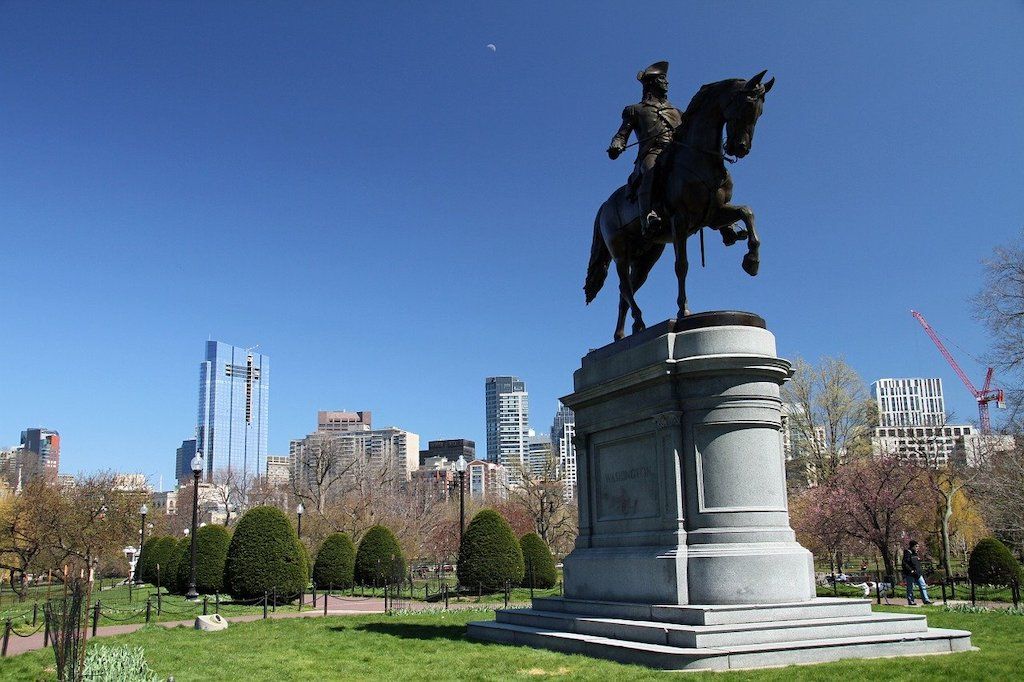The inauguration has me in a patriotic mood. Instead of writing my planned post on leadership, I’d like to tell a story from American history. For those of you who don’t know me, in addition to being an entrepreneur and a technologist, I am also a bit of a history nerd. The founders of this country - e.g. George Washington, John Adams, Thomas Jefferson - have always been an inspiration for me. While time has made them distant, a little reading and research can bring them back to life as real people. For example, many of us don’t realize that George Washington was the Bill Gates of his era. He was one of the wealthiest people before the Revolutionary War, and was a farmer, real estate speculator, and an entrepreneur. His adventures included pioneering wheat farming at a time when his neighbors all grew tobacco, building a grist mill to produce Washington-branded flour, and even launching a distillery to make his own whiskey. It’s worth noting that the image many of us have of George Washington as the old man from the famous Gilbert Stuart painting is not the same person who led the Continental Army during the Revolutionary War. The Washington who arrived in Boston after the Battle of Bunker Hill in 1775 was actually a tall and strong man in the prime of his life. The story I will tell today on leadership will be one from George Washington’s life. Here we go:
In March of 1783, there was trouble brewing in the Continental Army. Congress had failed to follow through on its commitment to reimburse soldiers for the expenses they incurred fighting the British in the Revolutionary War, and a growing number of officers were beginning to talk about taking action. For most of the eight year war, Congress had struggled to raise funds for the army, leaving them sorely underfunded in their fight against a global superpower. But what had started as private talk between soldiers had slowly gained momentum through the winter, and by March, officers were beginning to talk seriously about insurrection.
The American Revolution was effectively over by 1783. The defeat of the British at Yorktown in October 1781 had removed the last major resistance to independence, and by the time of this story, a settlement was near between the two nations. As commander of the army, George Washington was revered across the colonies for his leadership during what had proved to be a long and difficult war. He was so revered that many expected he would become leader of the new nation - a benevolent dictator for the 13 colonies.
As the resentment toward Congress grew within the army, George Washington heard about a secret meeting of his officers to plan their next steps against Congress. He preempted this meeting by calling an assembly, where he personally implored them not ruin all they had accomplished with insurrection. After finishing his speech, he reached into his breast pocket to pull out a letter from Congress. In an unscripted moment, he unfolded the letter only to realize he could not read it without his glasses. As he reached into his breast pocket and put his glasses on, he said: “Gentlemen, you must pardon me. I have grown old in the service of my country and now find that I am growing blind.”
With those words, the anger the officers felt toward Congress deflated like a punctured balloon. There was not a dry eye in the room. There would be no insurrection, and the army would not overthrow its government as had happened in almost all previous revolutions. George Washington would not become our benevolent dictator, and the nation would buy precious time to survive until the Constitutional Convention of 1787 forged a true republic. Later that year, George Washington would resign his commission to go back to his private life as a farmer and entrepreneur. With this move, a stunned King George III was reported to have said: “If he does that, he will be the greatest man in the world.”
Leadership is rarely what you say and often not what you do. Leadership can sometimes be as simple as who you are.
